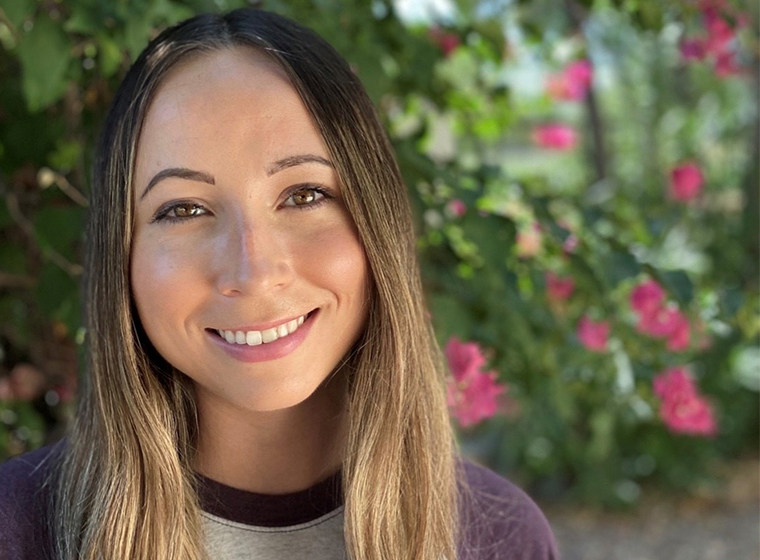Marisa Carroll is a Senior Behavior Therapist at Southwest Autism Research & Resource Center (SARRC). She has been with SARRC for three years working within the Community School, an inclusive preschool program that provides high-quality early childhood education and ABA-based programming for children with autism and their typically developing peers.
Marisa normally works at the Tempe Community School campus where she leads a classroom of about 15 children. Due to the COVID-19 pandemic, though, SARRC’s inclusive preschool program shifted its model in order to provide children with autism and their families the support they needed, while keeping everyone safe.
ADAPTING TO A NEW NORMAL
For the safety of our clients and staff, SARRC limited contact to one family and one therapist. Instead of meeting at the Community School campus in its traditional group environment, each therapist was assigned a client and goes to their home every day to provide medically necessary therapies.
“I think it’s definitely giving all of our clients a sense of consistency and stability within the care that we give, and that in itself, is very helpful,” Marisa says. “The structure is helpful, especially since everything is not in our control right now. I imagine that for my clients and others, this time is very confusing.”
We caught up with Marisa to get a peek into one of her current typical days during the COVID-19 pandemic:
6-6:30 a.m.: I take this time to check my email, and usually have a few from a supervisor or team member. Typically, I lead a team of other therapists. I train, watch videos of therapists and get feedback, I’ll meet with my supervisor, or I’ll write a report.
I’ll also use this time to try to map out something to enter my client’s home with—something that I think they would enjoy, like a toy or game. My client really enjoys mail and mail carrying services, so I’ve even dressed up as a UPS driver to motivate him. I try to be as fun as possible.
9:30 a.m.: I arrive at my client’s house. He is a Pre-K student, so age 4-5. We’re working on promoting appropriate language use, emotional regulation, and appropriate engagement with toys and his parents.
We use play-based interactions, so there are many games like board games, Legos, and toys. We use his interests to build upon interactions, as well. He likes science-based experiments, so we do a lot of those and I use that to motivate him. We’ll do something more structured, like an art project, and then he’ll try to earn his science experiments—although we incorporate therapy into those, as well.
Noon-1 p.m.: I take an hour lunch break.
1-4:30 p.m.: I continue working with my client, incorporating the goals that we’re working on into activities for him.
4:30 p.m.: I head home for my evening, though I do still check emails from home.
While SARRC has had to make some shifts in the delivery of our programs, Marisa stays committed to SARRC’s mission and her own: “I really want to impact a child’s language skills, independence skills, social-emotional skills, and teach them to be able to advocate for themselves, even if that just means saying what they want to play with or not play with.”
WE’RE HIRING!
We are currently conducting phone and virtual interviews for various open positions. In addition to a meaningful work environment, SARRC offers a range of benefits for our employees including quality medical insurance, professional development, 401(k) contribution and matching, a 20% employee discount on SARRC programs, and more. Whether you’re just getting started or have experience, we encourage you to explore the many career opportunities at autismcenter.org/careers.

